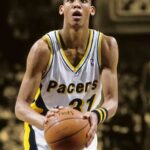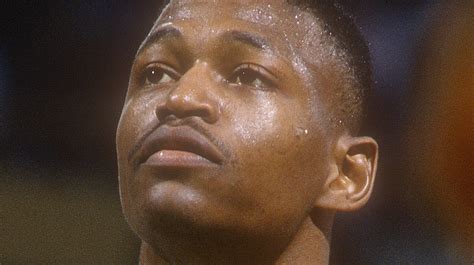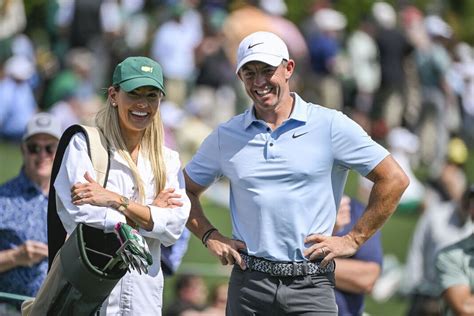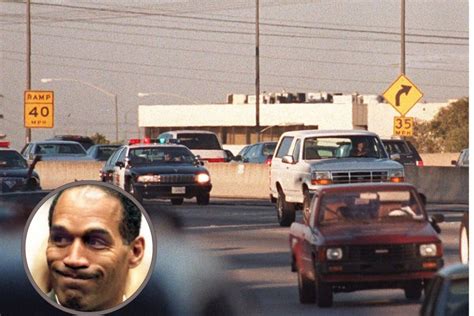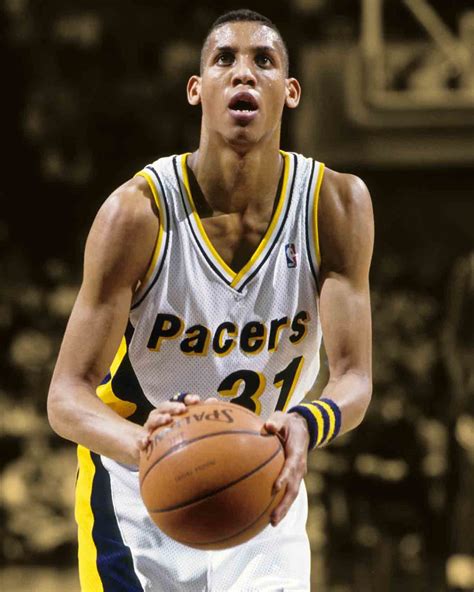
Reggie Miller, the Indiana Pacers legend and Hall of Famer known for his trash-talking and clutch performances, has revealed that he harbored a silent fear of one particular NBA player during his career: Michael Jordan. Despite facing Jordan numerous times in high-stakes matchups, Miller admitted he “never said a word to him,” a stark contrast to his usual confrontational demeanor.
Reggie Miller, renowned for his fierce competitiveness and legendary battles on the basketball court, particularly against the New York Knicks, recently disclosed a surprising aspect of his NBA career: the silent respect, bordering on fear, he held for Michael Jordan. Miller, known for his relentless trash talk and unwavering confidence, confessed that he intentionally avoided engaging in verbal sparring with Jordan throughout their numerous encounters.
During an appearance on the “Dan Patrick Show,” Miller unveiled this previously unacknowledged dynamic. “I never said a word to him,” Miller stated, emphasizing the profound impact Jordan had on his approach to the game. This revelation stands in stark contrast to Miller’s well-documented history of verbal jousting with other NBA stars, including his infamous feuds with Knicks players like John Starks and Charles Oakley.
Miller elaborated on his strategic decision, explaining that he recognized the potential consequences of provoking Jordan. He feared that any attempt to rattle the Bulls legend would only serve to fuel Jordan’s competitive fire and unlock an even more dominant version of “His Airness.”
“I was afraid of the monster that I could unleash,” Miller admitted. “I just never wanted to poke that bear.” This candid admission provides a unique perspective on Jordan’s aura of invincibility during his prime. Even a seasoned competitor like Miller, who relished challenging opponents, recognized the inherent risk in attempting to intimidate Jordan.
Miller’s fear wasn’t rooted in a lack of confidence in his own abilities. Rather, it stemmed from a deep understanding of Jordan’s unparalleled mental toughness and unwavering focus. He understood that Jordan thrived on competition and that any perceived slight would only serve as motivation to elevate his performance. Miller’s self-awareness allowed him to recognize his limitations in this particular dynamic. He knew that engaging in trash talk with Jordan was a battle he was unlikely to win and that it would ultimately benefit his opponent.
The dynamic between Miller and Jordan highlights the psychological aspect of basketball at the highest level. While physical skills and strategic acumen are undoubtedly crucial, the ability to mentally outmaneuver opponents can be equally decisive. Miller’s decision to remain silent was a calculated gamble, a recognition that sometimes the best strategy is to avoid confrontation altogether.
Throughout his career, Miller established himself as one of the most clutch performers in NBA history, consistently delivering in pressure-filled situations. His battles against the Knicks, particularly in the 1994 and 1995 playoffs, are legendary. He famously taunted Spike Lee, the Knicks’ courtside fixture, and drained game-winning shots, cementing his reputation as a villain in New York. However, when it came to Jordan, Miller adopted a completely different approach. He opted for respectful silence, acknowledging the unique challenge that Jordan presented.
This anecdote provides a glimpse into the respect that even the most confident players held for Jordan. Despite his aggressive playing style and penchant for trash talk, Miller recognized Jordan as a different breed of competitor. He understood that Jordan operated on a higher plane and that attempting to engage him in psychological warfare would be a futile endeavor.
The admission also offers insights into Miller’s strategic thinking. He wasn’t simply a hot-headed shooter; he was a savvy player who understood the nuances of the game. He recognized when to engage in trash talk and when to refrain, tailoring his approach to maximize his team’s chances of success. In the case of Jordan, he believed that silence was the most effective strategy.
Miller’s career is a testament to his skill, determination, and competitive spirit. He consistently defied expectations, overcoming physical limitations to become one of the greatest shooters in NBA history. He was a master of creating space, utilizing screens, and getting off quick shots. He also possessed an uncanny ability to perform under pressure, hitting countless game-winning shots throughout his career.
While Miller’s accomplishments are undeniable, his revelation about Jordan adds another layer to his legacy. It demonstrates that even the most confident players can be awed by greatness. It also highlights the importance of strategic thinking in basketball and the ability to adapt one’s approach based on the opponent.
The context of the Chicago Bulls dynasty is also crucial to understanding Miller’s perspective. Jordan led the Bulls to six NBA championships in the 1990s, establishing them as one of the most dominant teams in NBA history. The Bulls’ aura of invincibility was palpable, and many opponents were mentally defeated before even stepping onto the court. Miller, however, refused to be intimidated by the Bulls’ reputation. He consistently competed hard against them, leading the Pacers to several memorable playoff series.
Despite his competitive spirit, Miller recognized the unique challenge that Jordan presented. He understood that Jordan was not just a great player, but a force of nature. He respected Jordan’s talent, work ethic, and mental toughness. This respect, coupled with his strategic thinking, led him to adopt a silent approach when facing Jordan.
The story of Miller’s silent fear of Jordan resonates with fans because it humanizes two of the game’s greatest competitors. It reveals that even the most confident players have moments of doubt and that even the fiercest rivals can harbor respect for one another. It also underscores the importance of mental toughness and strategic thinking in achieving success at the highest level of professional sports.
Miller’s playing style was characterized by his relentless movement, his ability to create space, and his deadly accuracy from beyond the arc. He was also a master of drawing fouls, often exaggerating contact to gain an advantage. His antics sometimes drew the ire of opponents and fans, but they were also a testament to his competitive spirit and his willingness to do whatever it took to win.
Off the court, Miller has transitioned seamlessly into a successful broadcasting career. He is known for his insightful commentary, his sharp wit, and his willingness to speak his mind. He has also remained active in charitable endeavors, supporting various causes that are important to him.
The Pacers teams that Miller led were known for their toughness, their defensive intensity, and their unwavering belief in one another. They consistently challenged the Bulls, the Knicks, and other top teams in the Eastern Conference. While they never won an NBA championship, they left an indelible mark on the league.
Miller’s legacy extends beyond his individual accomplishments. He is remembered as a player who embodied the spirit of competition, who never backed down from a challenge, and who always gave his all for his team. He is also remembered as a player who respected his opponents, even those he fiercely competed against. His revelation about Jordan is a reminder that even in the heat of battle, respect and admiration can exist.
The rivalry between Miller and Jordan was a defining feature of the NBA in the 1990s. While Miller may have silently feared Jordan, he never shied away from competing against him. He consistently challenged Jordan, pushing him to his limits and forcing him to elevate his game. Their battles were legendary, and they helped to define an era of NBA basketball.
The impact of Michael Jordan on the game of basketball is immeasurable. He inspired millions of people around the world to pick up a basketball and chase their dreams. He raised the standard of excellence for all NBA players, pushing them to work harder and strive for greatness. He also transformed the NBA into a global phenomenon, attracting fans from all corners of the world.
Miller’s story is a reminder that even the greatest players have their vulnerabilities. It is a testament to the power of respect, the importance of strategic thinking, and the enduring legacy of Michael Jordan. It also highlights the psychological complexities of professional sports, where mental strength and strategic acumen can be just as important as physical skills.
The lasting impact of this revelation lies not just in the surprising admission itself but in the broader understanding it provides about the dynamics between competitors at the highest level. It’s a testament to Jordan’s intimidating presence and Miller’s strategic acumen, showcasing how even the most confident players can adapt their approach when facing an unparalleled force. The story continues to resonate because it humanizes these legends, revealing a layer of respect and fear beneath the fierce competition that defined their era.
Reggie Miller’s revelation about his silent fear of Michael Jordan is a compelling story that offers insights into the psychology of competition, the dynamics of rivalries, and the enduring legacy of one of the greatest basketball players of all time. It is a story that will continue to be told and retold for years to come, as fans reflect on the golden age of NBA basketball and the unforgettable battles between its iconic figures.
The admission sheds light on the immense pressure that players faced when competing against Jordan, knowing that any misstep could be exploited. It also reinforces the narrative of Jordan as an almost mythical figure, whose dominance extended beyond his physical abilities and into the mental realm. Miller’s respect for Jordan’s game and mental fortitude is evident, and it speaks volumes about the impact Jordan had on his contemporaries. It serves as a fascinating case study in competitive psychology and adds another layer to the already rich tapestry of NBA history.
Furthermore, this anecdote highlights the evolution of Miller’s own game. He wasn’t just a shooter; he was a strategist who understood the mental aspect of basketball. His decision to remain silent around Jordan wasn’t an act of cowardice, but rather a calculated move to avoid provoking the Bulls superstar. This revelation further cements Miller’s legacy as one of the smartest and most adaptable players of his era.
In conclusion, Reggie Miller’s candid admission about his silent fear of Michael Jordan provides a unique and valuable perspective on the dynamics of competition in the NBA. It reveals the psychological complexities of facing a dominant opponent and highlights the importance of strategic thinking and self-awareness. The story is a testament to Jordan’s unparalleled influence and reinforces Miller’s legacy as one of the most intelligent and competitive players of his generation.
FAQ about Reggie Miller’s Fear of Michael Jordan:
Q1: Was Reggie Miller actually scared of Michael Jordan, or was it more of a strategic decision to avoid trash-talking him?
A1: According to Reggie Miller himself, it was a combination of both. He admitted to harboring a “silent fear” of the “monster” he might unleash if he provoked Jordan. However, this fear was coupled with a strategic understanding that engaging in trash talk with Jordan would likely backfire and only motivate him further. As Miller stated, “I was afraid of the monster that I could unleash. I just never wanted to poke that bear.”
Q2: Did Reggie Miller ever have any on-court altercations or heated exchanges with Michael Jordan, despite avoiding trash talk?
A2: While Miller avoided direct trash talk with Jordan, they certainly had intense on-court battles. The physicality of the games and the high stakes of their matchups inevitably led to some bumping and jostling, but Miller intentionally refrained from engaging in verbal confrontations with Jordan. He focused on his game and avoided any actions that might ignite Jordan’s competitive fire.
Q3: How did Michael Jordan react to Reggie Miller’s silent approach during their matchups?
A3: The article doesn’t explicitly state how Jordan reacted to Miller’s silence. However, given Jordan’s intense focus and competitive nature, it’s likely he was aware of Miller’s strategy. Jordan was known for being highly observant and using any perceived weakness or psychological advantage to his benefit. He probably recognized that Miller was attempting to avoid provoking him and used that knowledge to further his own dominance. It is reasonable to assume that Jordan, always seeking an edge, understood Miller’s avoidance strategy and used it to his advantage.
Q4: What other NBA players did Reggie Miller famously trash-talk, and why did he choose not to do the same with Michael Jordan?
A4: Reggie Miller was well-known for trash-talking opponents, most notably players on the New York Knicks like John Starks and Charles Oakley. The intense rivalry between the Pacers and the Knicks fueled these verbal battles. Miller chose not to trash-talk Jordan because he recognized Jordan’s unique mental toughness and competitive drive. He feared that any attempt to intimidate Jordan would only make him more determined to dominate the game. Miller understood that Jordan thrived on challenges and that trash talk would only serve to fuel his fire.
Q5: How does Reggie Miller’s revelation about his fear of Michael Jordan affect his legacy as a fierce competitor and trash-talker?
A5: It doesn’t diminish his legacy but rather adds another layer of complexity. It shows that even the most confident and outspoken players can have moments of respect and even fear when facing exceptional opponents. Miller’s strategic decision to remain silent around Jordan demonstrates his intelligence and adaptability as a player. It highlights his understanding of the psychological aspects of the game and his willingness to adjust his approach based on the opponent. The revelation humanizes Miller and reinforces his reputation as a savvy and strategic competitor, not just a brash trash-talker.
Expanded Context and Analysis:
The dynamic between Reggie Miller and Michael Jordan transcends a simple rivalry; it delves into the psychology of competition, the aura of greatness, and the respect that even the fiercest competitors hold for one another. Miller’s acknowledgment of a “silent fear” isn’t a sign of weakness, but rather an astute assessment of Jordan’s unparalleled abilities and mental fortitude.
To fully appreciate the significance of Miller’s admission, it’s crucial to understand the historical context of the NBA in the 1990s. Michael Jordan reigned supreme, leading the Chicago Bulls to six NBA championships and establishing a dynasty that defined an era. Jordan’s dominance wasn’t merely about his physical prowess; it was also about his mental toughness, his unwavering confidence, and his ability to elevate his game in the most pressure-filled moments. He possessed an almost mythical aura, intimidating opponents and inspiring awe in fans worldwide.
Reggie Miller, on the other hand, carved his own path to stardom as a sharpshooter and clutch performer for the Indiana Pacers. Known for his relentless movement, his ability to create space, and his fearless attitude, Miller became a thorn in the side of many opponents, particularly the New York Knicks. His trash-talking and on-court antics often drew the ire of opposing fans, but they also underscored his competitive spirit and his willingness to do whatever it took to win.
The contrast between Jordan’s dominance and Miller’s scrappy competitiveness highlights the unique dynamic between the two players. Miller recognized that Jordan was a different breed of competitor, someone who thrived on challenges and used any perceived slight as motivation. Therefore, he made the calculated decision to avoid engaging in trash talk, fearing that it would only unleash an even more formidable version of “His Airness.”
This revelation provides a fascinating glimpse into the mind of a professional athlete. It demonstrates that even the most confident players can be awed by greatness and that even the fiercest rivals can harbor respect for one another. It also underscores the importance of strategic thinking in basketball, the ability to adapt one’s approach based on the opponent, and the psychological complexities of facing a dominant force.
Miller’s decision was not just about avoiding trash talk; it was about recognizing the potential consequences of provoking a player like Jordan. He understood that any attempt to rattle Jordan could backfire spectacularly, leading to a dominant performance that could demoralize the entire Pacers team. It was a strategic decision aimed at minimizing the risk of igniting Jordan’s competitive fire.
The silence, therefore, became a form of respect, a tacit acknowledgment of Jordan’s exceptional abilities. It was also a strategic maneuver, a way of avoiding a potentially damaging confrontation. It’s a testament to Miller’s basketball IQ that he understood the nuances of this dynamic and adapted his behavior accordingly.
Furthermore, this revelation underscores the psychological aspect of basketball. While physical skills are undoubtedly important, the ability to mentally outmaneuver opponents can be equally crucial. Miller’s decision to remain silent was a calculated risk, a recognition that sometimes the best strategy is to avoid confrontation altogether.
The context of the Chicago Bulls’ dominance also plays a significant role in understanding Miller’s perspective. The Bulls weren’t just a great team; they were a force of nature. Their aura of invincibility was palpable, and many opponents were mentally defeated before even stepping onto the court. Miller, however, refused to be intimidated by the Bulls’ reputation. He consistently competed hard against them, leading the Pacers to several memorable playoff series.
Despite his competitive spirit, Miller recognized the unique challenge that Jordan presented. He understood that Jordan was not just a great player, but a cultural icon, a global phenomenon. He respected Jordan’s talent, work ethic, and mental toughness. This respect, coupled with his strategic thinking, led him to adopt a silent approach when facing Jordan.
The story of Miller’s silent fear of Jordan resonates with fans because it humanizes two of the game’s greatest competitors. It reveals that even the most confident players have moments of doubt and that even the fiercest rivals can harbor respect for one another. It also underscores the importance of mental toughness and strategic thinking in achieving success at the highest level of professional sports.
In addition to his strategic thinking, Miller’s decision also reflects a degree of self-awareness. He recognized his own strengths and weaknesses, and he understood that trash-talking Jordan was not a battle he was likely to win. It was a mature and pragmatic assessment of the situation, demonstrating his ability to adapt his approach based on the opponent.
Miller’s legacy as a fierce competitor and a clutch performer is well-established. He consistently defied expectations, overcoming physical limitations to become one of the greatest shooters in NBA history. He was a master of creating space, utilizing screens, and getting off quick shots. He also possessed an uncanny ability to perform under pressure, hitting countless game-winning shots throughout his career.
While Miller’s accomplishments are undeniable, his revelation about Jordan adds another layer to his legacy. It demonstrates that even the most confident players can be awed by greatness. It also highlights the importance of strategic thinking in basketball and the ability to adapt one’s approach based on the opponent.
Ultimately, Reggie Miller’s admission is a testament to the enduring legacy of Michael Jordan. It underscores the profound impact that Jordan had on the game of basketball and the respect he commanded from his peers. It also provides valuable insights into the psychology of competition and the complex dynamics that exist between rivals at the highest level. The story will continue to be told and retold for years to come, as fans reflect on the golden age of NBA basketball and the unforgettable battles between its iconic figures.




